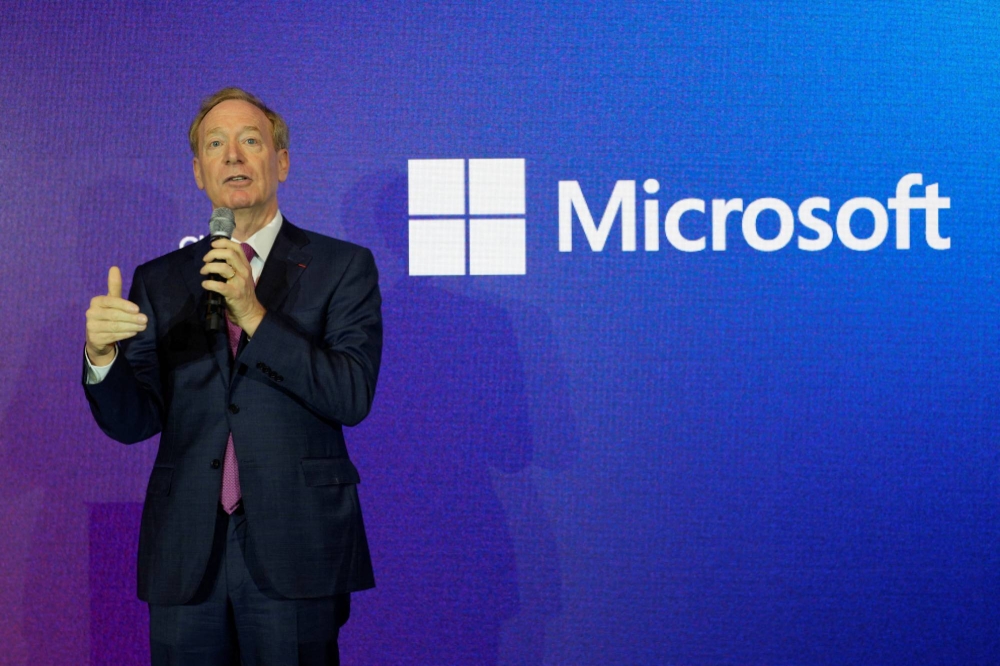Microsoft President Brad Smith has revealed that the tech giant’s partnership with G42, a United Arab Emirates-backed AI firm, could potentially involve the transfer of advanced chips and tools. This move has raised concerns from a senior Republican member of Congress regarding potential national security implications.
In an interview with Reuters, Smith disclosed that the sales agreement between Microsoft and G42 could advance to a second phase, which would include the export of essential components of AI technology, such as model weights. These model weights are considered the crown jewel of AI systems, as they determine the power and capability of the technology.
Although there is no set timeline for the implementation of the second phase, Smith’s comments suggest that Microsoft is considering further collaboration with G42 that could involve sharing critical AI technology. This development highlights the evolving nature of the partnership between the two companies and its potential implications on national security.
The Republican member expressed concern over potential national security risks associated with this move. They argued that sharing critical AI technology with foreign governments or firms could put sensitive information at risk and threaten American interests.
Smith acknowledged these concerns but emphasized that Microsoft takes national security very seriously and is committed to complying with all applicable laws and regulations.
This news comes amid growing tensions between Western nations and China over issues related to artificial intelligence and data privacy. The United States has accused China of stealing intellectual property and using it to gain an advantage in global markets.
Microsoft’s partnership with G42 raises questions about how far Western companies are willing to go in their pursuit of business opportunities abroad. It also highlights the need for increased transparency in these partnerships to ensure that they do not compromise national security or ethical standards.
Overall, this development underscores the importance of responsible use of technology in today’s interconnected world. It also serves as a reminder that businesses must balance their economic interests with their moral obligations to protect society from potential harm caused by emerging technologies like AI.



